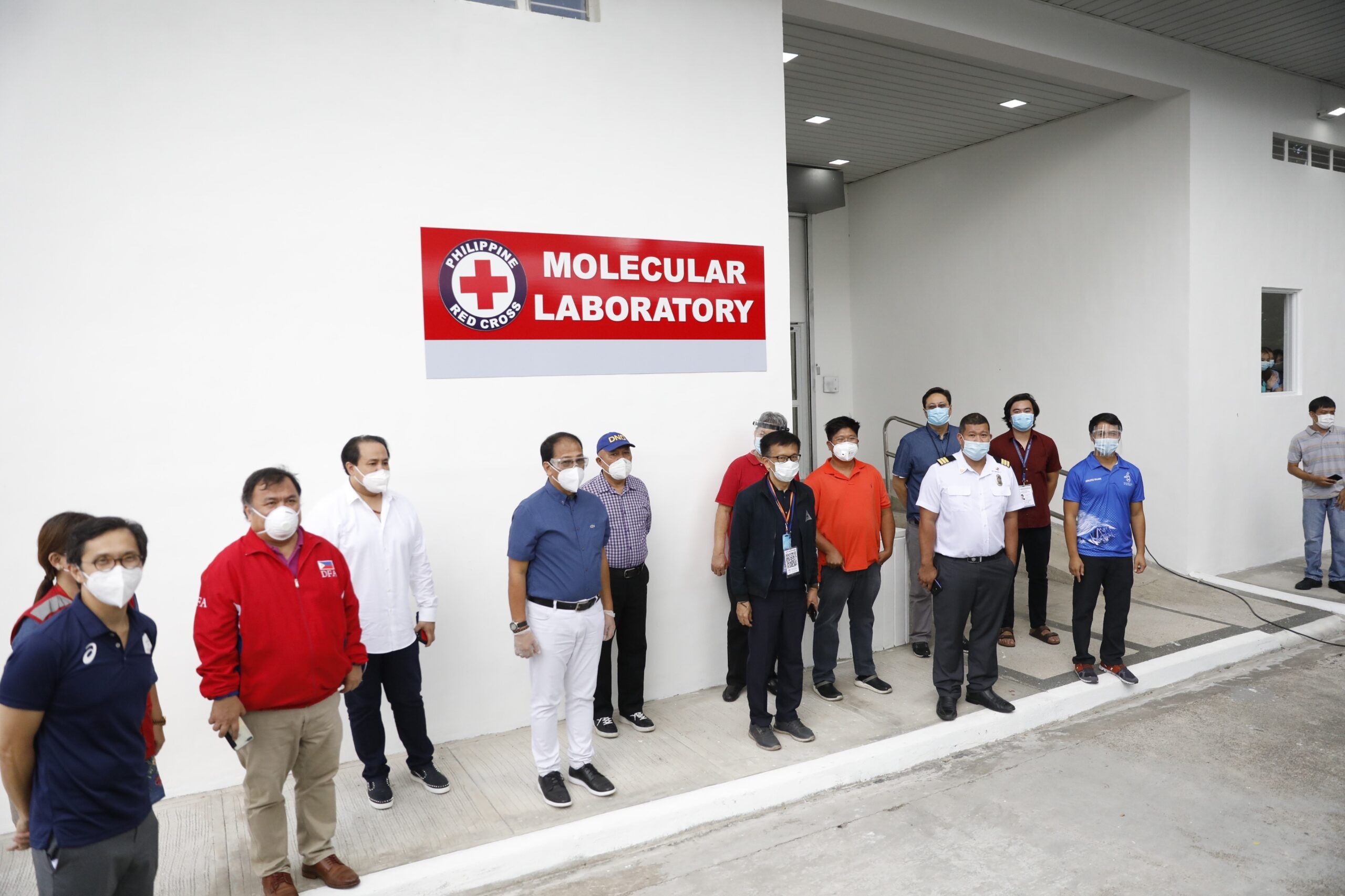SUMMARY
This is AI generated summarization, which may have errors. For context, always refer to the full article.

PAMPANGA, Philippines – A new bio-molecular laboratory of the Philippine Red Cross (PRC) opened in Clark Freeport Zone here on Friday, June 19.
In a statement sent to the media, Senator Richard Gordon, PRC chairman and chief executive officer, said the opening of the bio-molecular laboratory will boost the country’s COVID-19 testing capacity.
He said the new laboratory located at the Clark Civil Aviation Complex was built in partnership with the Bases Conversion and Development Authority already passed the Research Institute for Tropical Medicine’s (RITM) proficiency test last week and was accredited as a certified COVID-19 testing center.
“Our molecular laboratory in Clark is equipped with polymerase chain reaction (PCR) machines that are capable of testing 2,000 samples per day, which will enable us to run an overall total of 16,000 tests a day since we are also opening our laboratory in Subic. This will really help us as we ramp up our testing capacity so that more people will get tested all over the country,” Gordon said.
“Our aim is to really get our people tested so that we can immediately isolate those who are affected and prevent the non-carriers from acquiring the virus. We really have to ramp up testing to ensure victory over COVID,” he added.
Gordon said the first 2 molecular laboratories of the PRC are located at its national headquarters along EDSA in Quezon City.
“Aside from these, another laboratory in its former headquarters in Port Area, Manila is already running. Other testing centers in Batangas, Laguna, Mandaue City, Isabela, Cagayan de Oro, Zamboanga City, Bacolod City, and Surigao are also opening soon. The Red Cross is planning to add 10 more PCR machines in the Manila lab, which will allow them to do a total of 46,000 tests per day,” he said. – Rappler.com
Add a comment
How does this make you feel?





There are no comments yet. Add your comment to start the conversation.